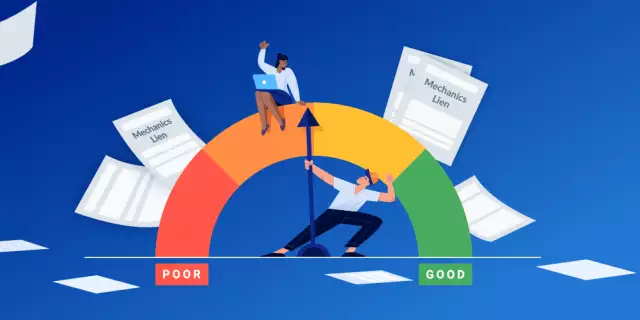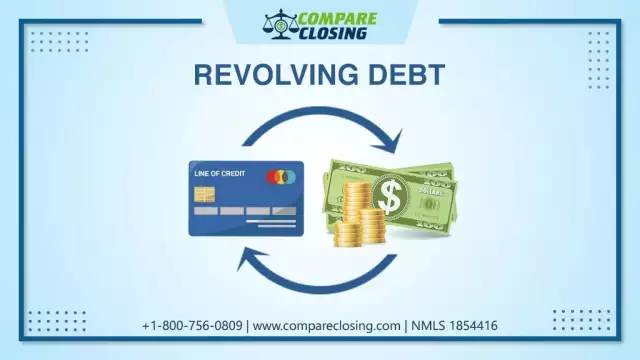Do Student Loans Affect Credit Score? - Total Mortgage
Whether or not student loans affect credit score will depend on several factors. Overall, student loans can positively and negatively impact your credit score. If you make timely payments, it could be a good way to build your credit. If you miss payments, it could cause your credit score to drop.
If you’re worried about financial hardship affecting your student loans, there are options to protect your credit score from taking a significant hit.
How Credit Score Is Calculated
Your credit score is calculated based on several factors that demonstrate your creditworthiness. The credit scores used by the three major credit bureaus — Experian, Equifax, and TransUnion — are your FICO Score and VantageScore.
FICO scores are typically in a range between 300 and 850 where a higher credit score shows better credit. Your credit score tells lenders how likely you are to repay a loan based on your credit history.
Credit scores are calculated based on five categories from your credit report:
The percentage reflects the importance of each category when determining your credit score.
The three major credit bureaus can also have different data from one another, so your credit score may vary depending on what data was used.
Positive & Negative Effects of Student Loans on Credit Score
Do student loans affect credit score? Both positive and negative information in your credit report can affect your credit score with loan debt. Here’s how student loans affect your credit.
Positive Effects
Student loans can help you establish a credit history and boost your credit score. Here are a few benefits:
Negative Effects
Student loans appear on your credit report as installment loans once you take the loan out, so the entire loan balance doesn’t have much of an effect. However, student loans are still debt, which can potentially lower your credit score. Here’s how student loans can drop your credit score:
We have experts around the country. Find a branch in your neighborhood today.
What if You Forget or Skip a Student Loan Payment?
Forgetting or skipping a student loan payment is never a good idea. However, exactly when your missed payment is reported to the credit bureaus depends on whether you have private loans or government loans.
For Private Loans
Some private lenders may report missed payments in as little as 30 days and default may be recorded after 120 days. Private lenders generally make their own rules when it comes to reporting missed payments so it’s important to contact your servicer to ask what happens in that situation.
For Government Loans
Federal student loans tend to be more lenient. Delinquency or missed payments on federal student loans aren’t reported until they are 90 days past due. If you catch up on payments within three months, then it shouldn’t bring your credit score down.
Student Loan Forbearance & Forgiveness
If you have student loans and you’re worried about being able to afford monthly payments (which could impact your credit score), then assistance may be available through student loan forbearance or forgiveness.
Forbearance
Student loan forbearance reduces or postpones your loan payments, but interest continues to accrue during the forbearance period, which is then added to the loan amount owed. This is usually only granted during times of financial hardship and typically lasts about 12 months.
For federal student loans, conditions and payment amounts for certain types of student loan forbearance are mandated by law. After 12 months, forbearance can be renewed for up to three years. For private student loans, forbearance is granted for 12 months, and renewal is rarely granted. Conditions and payment amounts are up to the individual lender.
Forgiveness
Student loan forgiveness is another form of student debt relief. Only direct loans through the federal government are eligible for student loan forgiveness.
However, if you have another kind of federal student loan, you may be able to consolidate them into a single direct consolidation loan. This could give you access to income-driven repayment plans, which can be forgiven after making 20 years of qualifying payments.
Teachers can also have up to $17,500 of their federal direct student loans forgiven by teaching for five consecutive academic years at a qualifying low-income school or educational service agency. Additionally, full-time workers for the federal, state, local, or tribal government or a non-profit organization could be eligible for public service loan forgiveness of their federal direct loan.
What to Do if You Can’t Pay Your Student Loan?
You have several options if you can’t afford to pay your student loans.
1. Contact your loan servicer and explain the situation. Your service may be able to arrange an affordable repayment schedule.
2. Reduce your expenses if your budget is tight.
3. Find ways to increase your income.
4. If you have federal student loans, consider an income-driven repayment plan. This allows you to lower your monthly payment to 10% to 20% of your discretionary income.
5. Consolidate your federal student loans into a single payment. This could also allow you to extend your repayment term and reduce your monthly payment amount.
6. Look into forbearance or deferment options.
7. Refinance your student loans to potentially reduce your monthly payments.
Refinancing a Student Loan
Refinancing federal student loans could cause you to lose benefits, so refinancing may be a better option if you have private student loans.
Refinancing your private student loans could potentially save you thousands of dollars throughout the life of the loan if you qualify for a lower interest rate. Refinancing a student loan could allow you to:
Can I Qualify for a Mortgage With Student Loan Debt?
It’s possible to qualify for a mortgage with student loan debt, but there are factors that must be taken into account.
When you go to a mortgage lender looking for a home loan, the lender will look at your front-end and back-end DTI ratios, income, work history, assets, credit history, and down payment amount.
If you have student loan debt but are still under the lender’s DTI threshold and make enough income, your debt shouldn’t prevent you from qualifying. However, if your student loan debt gives you a high DTI ratio, then it may be difficult to qualify for a mortgage.
Explore Your Options With Total Mortgage
Do student loans affect credit score? Yes, student loans can affect your credit score both positively and negatively. However, you can still buy a home even if you have student loan debt.
If you’re ready to take the next step, consider Total Mortgage’s loan program options. Schedule a time to chat with one of our mortgage experts or apply online today and get a free rate quote.



